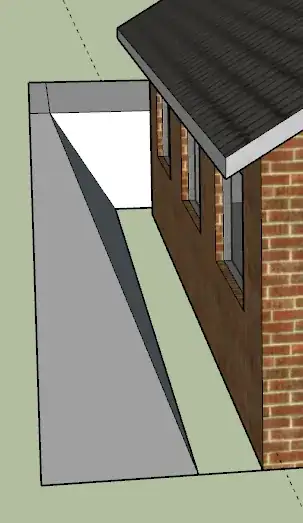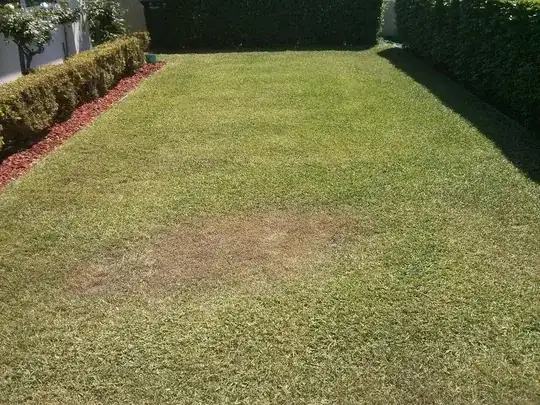I'm buying my first house very shortly, and as expected it has some problems. One of the big ones is water management around the garage. There is already water damage inside the garage so I want to tackle this as soon as I take possession of the house, but since I haven't yet all of the numbers below are eyeballed.
The garage is freestanding, with no gutters. To the left of the garage and behind it, there is roughly level ground for about a foot all around, before sharply climbing at a slope of probably 50+ degrees. The slope begins towards the front of the garage, but by the back of the garage it's about 3' tall. To the left of the garage, the top of the slope is almost right at the edge of the property, where the neighbor has a fence.
Here's a quick Sketchup to illustrate, because I'm sure that's as clear as mud.
The previous owner had filled that trench in between the slope and the garage with sandbags in a failed attempt to keep the water out.
What I'm thinking about doing is constructing a retaining wall to clean up that slope and hopefully gain me a few inches, and then run a curtain drain (or French drain, there seems to be some terminology disagreement here) along the side of the garage, sloping towards the front of the property, and draining into a narrow bioswale or similar in between my driveway and the neighbor's property. I would also like to install gutters, and pipe the downspout on the left side down into the curtain drain.
In the back there's a good bit more space, but that hill runs the entire width of the property.
Here I'm at kind of a loss. My inspector recommended constructing a ditch that ran behind the garage and then down the contour, directing the water to the right of the garage. That would dump the runoff pretty much right where I was planning on making a garden, which is less than desirable. I had considered constructing a swale on contour instead to hold the water and encourage infiltration, but my understanding is that would be detrimental to the retaining wall I want to build to prevent erosion and for aesthetic reasons.
Is this feasible to pull off in such a tight spot? Would it actually work? Do you have any better ideas? What additional things should I consider?

